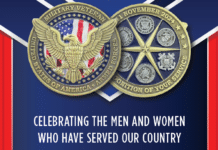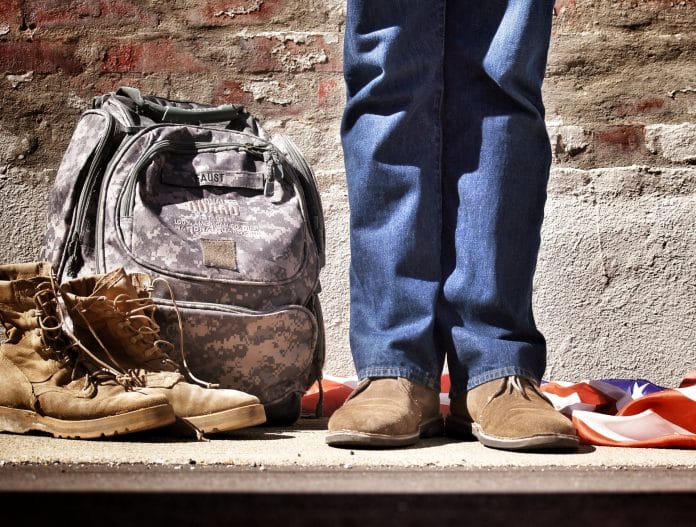The transition from military service into civilian life may not be as smooth as you hoped for. If you already have skills that suit you up for a particular career, you’re good. But if you aspire towards a career that requires higher education, college is a necessary step along the way.
Many veterans have their justified suspicions about going back to college. Finances are the main concern. An average student spends above $50K for a year at a private U.S. university. That amount doesn’t involve unexpected expenses, such as the ones when students have to hire a “write my assignment” service.
The good news is that veterans have many opportunities to gain scholarships that cover tuition costs and part of their living expenses.
College Financial Aid Opportunities for Veterans
The U.S. government is committed to help veterans obtain higher education if they want to. They can count on a few financial aid programs that support them and their families throughout the college journey.
If you’re interested in these opportunities, this is where your research should start:
- Post-9/11 GI Bill
The GI Bill was created with the intention to help service members gain education. The Post-9.11 GI Bill extended the initial benefits for those who were in active duty immediately after the September 11 events. If you enlisted within 90 days of that date, you qualify to benefit from this program.
The state will cover up to 100% of college tuition expenses (up to the average tuition rate for in-state students). In addition, the participants get $1000 to use for books and supplies, as well as a monthly allowance for housing.
If you apply at a private university or college, you’ll also be eligible for the Yellow Ribbon Project. Let’s check that one out next.
- Yellow Ribbon GI Education Program
If the tuition for your chosen program is higher than the one covered by the Post-9/11 GI Bill, you can count on this program to cover the rest. However, you have to make sure that your university participates in the program first.
This program imposes three main requirements:
- Active duty of at least 3 years after September 10, 2001.
- Being a dependent who qualifies for Transfer of Entitlement in accordance with the post-9/11 GI Bill.
- Being honorably discharged from active duty for a disability related to service (after at least 30 continuous days of service after September 10, 2001).
Your college may have limitations on the number of students they accept under the Yellow Ribbon Program.
- Montgomery GI Bill
Servicemen and women get an offer to invest $100 from their monthly pay allowance into their education. For $600 from their monthly pay allowance, they receive greater benefits.
The amount you receive depends on the individual contributions and the time served. As an average, veterans who received an honorable discharge get around $37,000, broken up into education benefits over 36 months.
This may not be enough for veterans with an average income. When we add the need to find online assignment help, buy books, and have a social life while studying, the need for extra financial aid is evident. Fortunately, you can combine these benefits with other financial aid programs.
- Additional Financial Aid Programs
If you qualify for some of the above-listed programs but they don’t cover your complete expenses, you can apply for another program.
- If you enroll in a program that prepares you for a career in teaching, you can count on the Troops to Teachers scholarship. It’s granted by the U.S. Department of Defense. Your application essay for the program has to be impressive. If you know how to write an assignment, you won’t have troubles meeting the requirements.
- Leadership through Action – Tillman Military Scholars is a program offered by the Pat Tillman Foundation. It’s meant for veterans who want to continue their college education or start a program from scratch. The award will vary, depending on your financial needs and merit.
- Some colleges offer their own financial aid programs for veterans. If you apply at Grantham University, Michigan State University, De Anza College, or another institution with such a program, you’ll get more of your expenses covered.
It Takes Some Research, But You’ve Got This!
The GI Bill and the Yellow Ribbon Program are straightforward. You immediately know whether you qualify or not. It’s easy to fill in an application and wait for an answer. But if you have extra expenses that need covering, you’ll need to search through various financial aid programs and send out more applications. Each program has its own requirements. You’ll have to write personal application essays. If you don’t know how to write a good assignment essay, you might need the help of a pro writer or editor.
You’re not prone to giving up. The time in service trained you in persistence and strength of will. If you set your eye on higher education, nothing will stop you from getting it.
BIO: Ray Campbell has a mission to help more people gain the education they deserve, despite the financial obstacles that they face. There are many financial aid programs available to different categories of applicants. Through his blog posts, Ray sheds some light to these opportunities.
All content herein is owned by author exclusively. Expressed opinions are NOT necessarily the views of VNR, authors, affiliates, advertisers, sponsors, partners, technicians, or VT Network. Some content may be satirical in nature.
All images within are full responsibility of the author and NOT VNR.
Read Full Policy Notice - Comment Policy





























